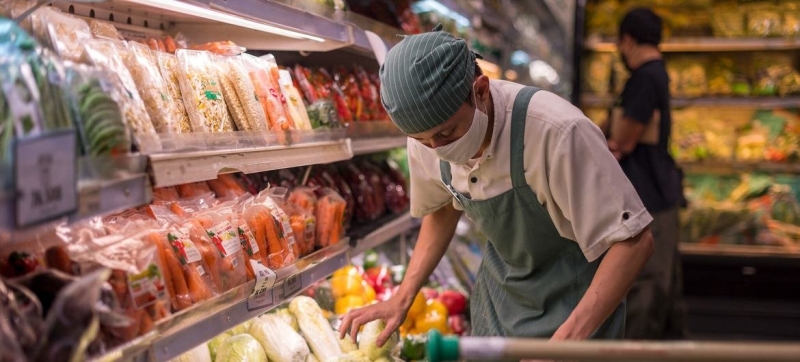
The decline in world prices for grains made it possible to compensate for the increase in the cost of vegetable oils, meat products and sugar. FAO Index: World food prices fell slightly in July Economic development
In July, world food prices, according to the Food and Agriculture Organization of the United Nations (FAO), fell slightly compared to June. The decline in world cereal prices helped offset the rise in the cost of vegetable oils, meat products and sugar.
The FAO Food Price Index in July was 3.1 percent below the same month last year and 24.7 percent below its peak of 160.3 points recorded in March 2022.
Cereal Prices
Global cereal prices fell 3.8 percent in July from June and 12 percent from July 2023. Growing seasonal supplies in the Northern Hemisphere and generally favorable weather conditions in Canada and the United States, as well as expectations of a bumper harvest, contributed to the fall in global wheat prices. Global maize export prices also declined under the influence of seasonal factors.
Vegetable Oils
The average value of the vegetable oil price index increased by 2.4 percent in July from June. This is the second consecutive month of growth, bringing the indicator to a one-and-a-half-year high. This is due to the growth of palm, soybean, sunflower and rapeseed oil prices on world markets.
Dairy products
Meanwhile, the average cost of dairy products has remained virtually unchanged compared to June: the rise in prices for butter and cheese was almost completely offset by a decrease in prices for dry milk.
Global milk powder quotations fell due to weak demand and partly due to the weakening of market activity in Western Europe due to the onset of the summer holiday period. Global cheese prices rose slightly, mainly due to strong domestic demand in Western Europe.
Meat Products
The Meat Price Index was 1.2 percent higher in July compared with June. Global ovine and beef prices rose mainly due to stable import demand and a seasonal decline in livestock numbers in Oceania.
Poultry prices also rose, due to strong import demand and disruptions caused by the spread of diseases, in particular outbreaks of avian influenza. World pork prices, by contrast, fell slightly on overproduction in Western Europe amid weakening demand, as well as an anti-dumping investigation in China and continued restrictions on access to overseas markets due to outbreaks of African swine fever.
Sugar
The sugar price index rose 0.7 percent from the previous month, driven by lower-than-expected production in Brazil in the first half of the month. Continued concerns about the effects of a prolonged dry spell in Brazil and a recent rise in ethanol prices also contributed to the rise in sugar prices.
